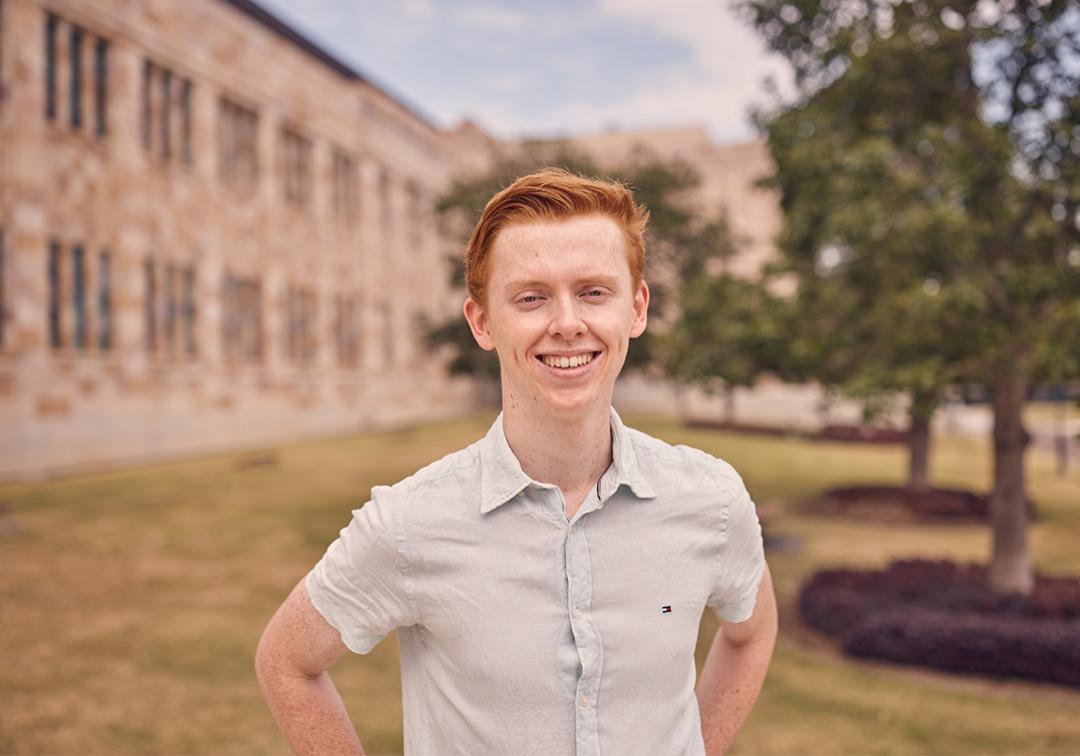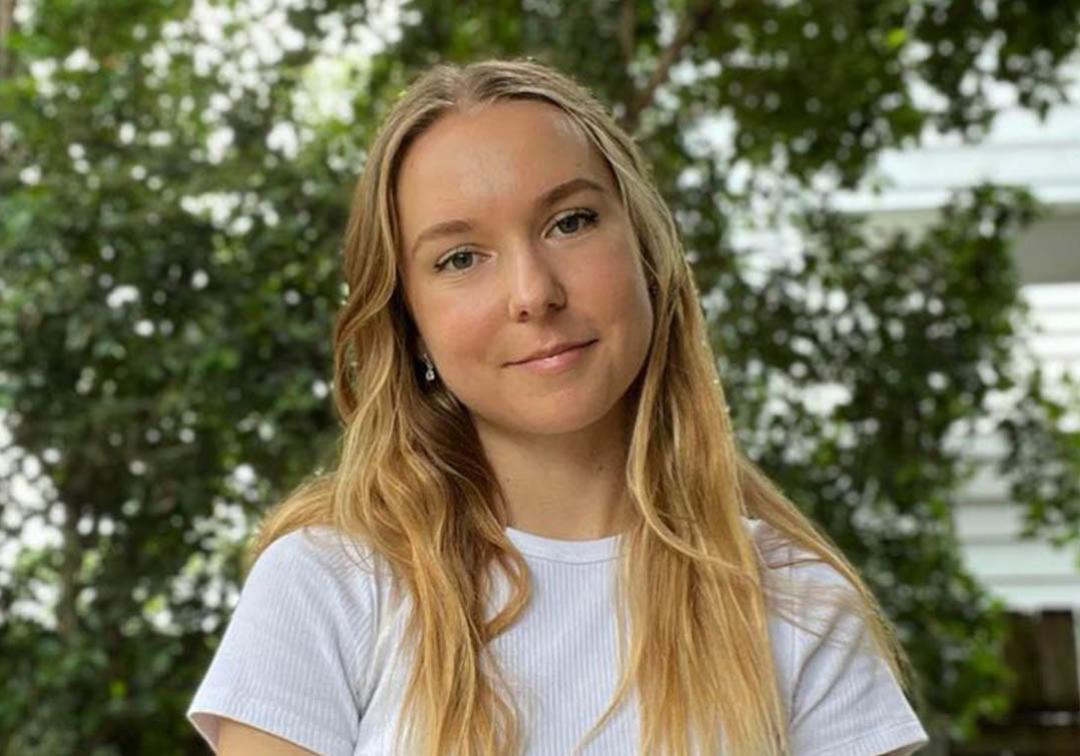
Bachelor of Politics, Philosophy and Economics (Honours)
Overview
Explore global policy challenges and prepare for a successful leadership career in business, politics, the NGO sector or academia.
With its variety and combination of complementary study areas, this unique program will equip you with a broad range of knowledge and capabilities critical for careers in public life. You'll develop skills in written expression, critical thinking and problem-solving, as well as technical mathematical, analytical and research skills.
Covering topics in history, society, politics, philosophy and economics, you’ll examine some of the world’s most pressing past, current and future problems.
After completing core courses across the 3 study areas of politics, philosophy and economics, you’ll have the opportunity to specialise in one area of interest. Or you can continue studying a combination of all 3 topics as a more general path.
The rigorous cross-disciplinary training you’ll gain from this program will prepare you for success in a range of decision-making roles across the public, private and not-for-profit sectors.
Program highlights
- Apply your theoretical and conceptual knowledge to real business issues via a Work-Integrated Learning (WIL) course.
- Study with other motivated, high-achieving students in small cohorts, leading to robust discussions in the classroom and supportive relationships.
- Learn from teachers who are internationally renowned scholars and have received a substantial share of Australia’s competitive research grants and fellowships.
- Develop an international network by completing a global study experience.
Majors
Tailor your studies to suit your goals. This program offers these options:
- Economics
- Philosophy
- Politics
How you'll learn
Your learning experiences are designed to best suit the learning outcomes of the courses you choose.
- Lectures
- Tutorials
- Online study
- Research experience
- Workshops
Placements and work experience
What you'll study
At UQ, degrees are called 'programs' and subjects are called 'courses'. Here's a sample of the courses you could study in this program:
- Introductory Microeconomics
- Introduction to Australian Politics
- Critical Reasoning
- Introduction to Ethics
Career possibilities
Our programs prepare you for your first job and beyond. Depending on which major you choose, here are some of the careers you could be on your way to:
- Economics, policy and social analyst
- Public commentator
- Political adviser
- Economic policy adviser
- Diplomat
- Foreign affairs officer
- Financial adviser
- Public policy analyst
- Public policy researcher
Average annual salary range
Policy Analyst
seek.com.au
Average annual salary range
Policy Adviser
seek.com.au
Professional memberships
When you graduate, you may be eligible for memberships with the following professional organisations. Contact the organisation to find out how to become a member.
- Australian Computer Society
- Australasian Institute of Banking and Finance
- Economic Society of Australia
Events
See all events
29 June
Voyages to the Underworld: UQ Centre for Western Civilisation Winter School
Stories
See all stories
Uni life
What’s it really like to study an economics degree at UQ?
6-minute read

Careers
What can you do with an economics degree?
14-minute read
Stories
See all stories
Uni life
What’s it really like to study an economics degree at UQ?
6-minute read

Careers
What can you do with an economics degree?
14-minute read
Entry requirements
Prerequisites
- General English subject (Units 3 & 4, C), and
- Mathematical Methods or Specialist Mathematics (Units 3 & 4, C)
Prerequisites
- General English subject (Units 3 & 4, C), and
- Mathematical Methods or Specialist Mathematics (Units 3 & 4, C)
Entry score threshold
| ATAR / Rank | IB |
|---|---|
| 94 | 38.25 |
These are the lowest adjusted scores we made an offer to in Semester 1, 2025. Entry scores are based on the most recent Semester 1 intake and are updated in April each year. Meeting the entry score threshold doesn't guarantee admission.
Guarantee your place at UQ: If you meet our guaranteed minimum ATAR you could secure an offer for your preferred program.
English language requirements
IELTS overall 6.5; reading 6; writing 6; speaking 6; listening 6. For other English Language Proficiency Tests and Scores approved for UQ
TOEFL iBT (including Paper Edition) - Overall 87, listening 19, reading 19, writing 21 and speaking 19.
PTE Academic - Overall Score of 64 and 60 in all sub bands.
BE - A minimum overall grade of 4 plus a minimum grade of C in all macro skills.
CES - Overall 176 and 169 in all sub bands.
OET is not accepted.
There are other ways to meet the English language requirements. For some programs, additional conditions apply.
Student visas
International students who are accepted into full-time study in the Bachelor of Politics, Philosophy and Economics (Honours) are eligible to apply for an Australian student visa (subclass 500).
There are a number of requirements you must satisfy before a visa is granted, including the Genuine Student (GS) requirement.
Entry score range
This table shows the range of entry scores for recent secondary students offered a place in the B PoliticsPhilosophyEcon(Hons) for Semester 1, 2025
| Without adjustments | With adjustments | |
|---|---|---|
| Highest | 99.35 | 99.95 |
| Median | 95.7 | 96.55 |
| Lowest | 90.85 | 94.1 |
Who you'll study with
Here's a snapshot of our student intake for this program in Semester 1, 2025:
| Applicant background | Number of students | Percentage of all students |
|---|---|---|
(A) Higher education study | N/P | N/P |
(B) Vocational Education and Training (VET) study | <5 | <5 |
(C) Work and life experience | 0 | 0% |
| (D) Recent secondary education | ||
| 38 | 64.4% |
| 0 | 0% |
| 0 | 0% |
International students | 0 | 0% |
Total | 59 | 100% |
"<5" — The number of students is less than 5.
N/A — Students not accepted in this category.
N/P — Not published. The number is hidden to protect the privacy of students in other cells.
Need help meeting the entry requirements?
Majors
Majors
Tailor your studies to suit your goals. This program offers these options:
Majors
Tailor your studies to suit your goals. This program offers these options:
Fees and Scholarships
Indicative annual fee
Approximate yearly cost of tuition (16 units). Your fees will vary according to your selected courses and study load. Fees are reviewed each year and may increase.
$17,340
2026
Approximate yearly cost of tuition (16 units). Your fees will vary according to your study load. Fees are reviewed each year and may increase.
AUD $54,096
2026
Government assistance
Financial aid
As an international student, you might be eligible for financial aid – either from your home country, or from the Australian Government.
HECS-HELP
Domestic places in the Bachelor of Politics, Philosophy and Economics (Honours) are Commonwealth supported, as long as you meet all Commonwealth supported place eligibility requirements.
This means the cost of your education is shared between you and the Australian Government. Instead of tuition fees, Commonwealth supported students pay what are called student contribution amounts.
If you have a Commonwealth supported place, you may also be eligible for HECS-HELP. This is an Australian Government loan scheme to assist eligible students with the cost of their student contribution amounts.
Centrelink support
The Australian Government offers a number of income-support payments to eligible Australian university students.
Scholarships
You may be eligible for more than 100 scholarships, including:
How to apply
Applying online
If your senior schooling is from outside Australia, you can submit your application to UQ. Or, if you prefer, you can use an approved UQ agent near you.
The program code for the Bachelor of Politics, Philosophy and Economics (Honours) is 2522.
How to apply for undergraduate study
If your senior schooling is from Australia
Submit your application to the Queensland Tertiary Admissions Centre if you're an international student who is currently studying:
- Australian Year 12 (in Australia or another country), or
- the International Baccalaureate in Australia.
The QTAC code for the Bachelor of Politics, Philosophy and Economics (Honours) is 714112.
Applying through QTAC
All domestic applications should be submitted to the Queensland Tertiary Admissions Centre (QTAC).
The QTAC code for the Bachelor of Politics, Philosophy and Economics (Honours) is 714112.
Important dates
If you’re studying Year 12 in Australia, go to the QTAC website to check the closing date for this program.
If you’re applying to UQ, the closing date for this program is:
- To commence study in semester 1 - November 30 of the previous year.
Visa processing times vary. Apply and accept your offer as early as you can.
To learn more about UQ dates, including semester start dates, view the Academic Calendar.
Important dates
To check the closing date for this program, go to the QTAC website.
To learn more about UQ dates, including semester start dates, view the Academic Calendar.
Admissions schemes
Applying to university can be both exciting and daunting, which is why we’ve tried to make the process as simple as we can.
We have several schemes in place to improve your chances of getting a place at UQ.
Pathway options
A rank or score doesn’t determine your potential.
If you're not offered a place in your first-choice program – or if you don't meet the entry requirements – you still have a number of options.
Aboriginal and Torres Strait Islander applicants
For support with applying – or if you have any questions about university life – get in touch with our Aboriginal and Torres Strait Islander Studies (ATSIS) Unit.
Explore other programs
Express yourself. And your interest.
They say choosing a degree is hard, which is why we've made it easy. Register your interest and we'll send you everything you need to know about applying to UQ.







